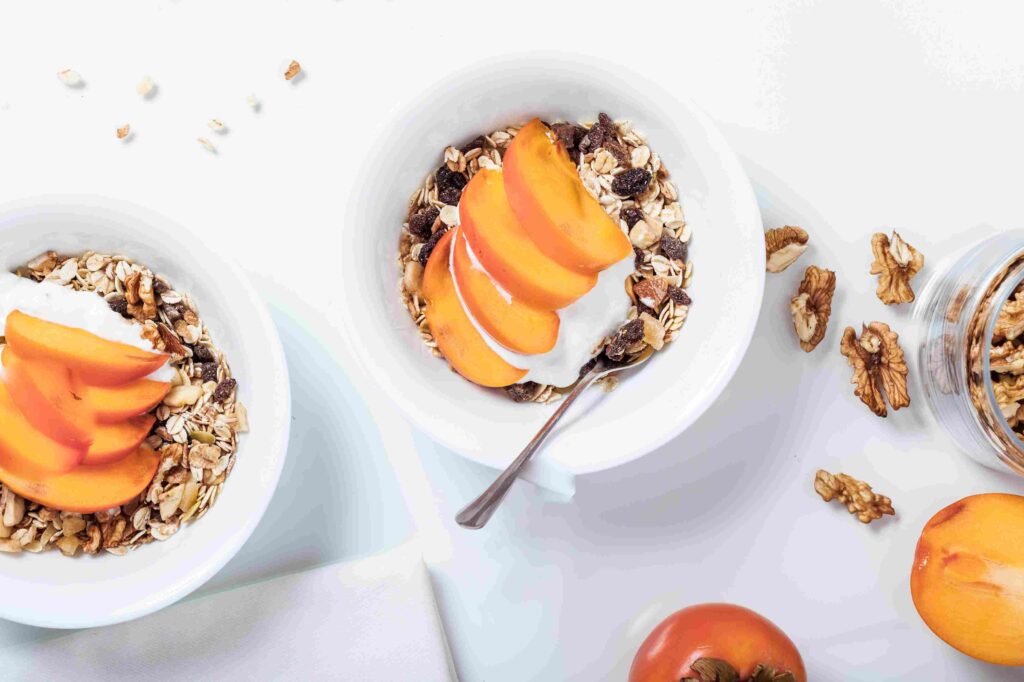Your gut health plays a vital role in your overall well-being, including weight management and digestive health. This article explores what gut health is, the benefits of a gut-healthy diet for weight loss and overall health, the best gut-friendly foods to eat, how to incorporate them into your diet, and tips for improving your gut health.

Table of Contents
What is Gut Health?
Gut health refers to the balance and optimal functioning of the trillions of microorganisms, primarily bacteria, living in your digestive system. This complex ecosystem, known as the gut microbiome, influences various aspects of your health, from digestion to immune function and even mental well-being.
Benefits of a Gut-Healthy Diet for Weight Loss and Overall Health
- Improved Digestion: A healthy gut microbiome promotes efficient digestion and nutrient absorption.
- Weight Management: A balanced gut microbiome is associated with a healthier body weight and can aid in weight loss.
- Boosted Immune System: A well-functioning gut can enhance your immune response and protect against infections.
- Better Mental Health: There’s a strong gut-brain connection, and a healthy gut can positively impact your mood and mental clarity.
- Reduced Inflammation: A healthy gut can help reduce chronic inflammation, which is linked to various diseases.
The Best Gut-Friendly Foods to Eat
A healthy gut is essential for overall well-being, and the foods you eat play a significant role in maintaining gut health. This comprehensive guide explores various gut-friendly foods that can support digestion, nourish beneficial gut bacteria, and contribute to a healthier gastrointestinal system.
1. Fiber-Rich Foods
Fiber is a cornerstone of gut health. It serves as fuel for beneficial gut bacteria, promoting their growth and activity. Include a variety of whole grains (such as oats, brown rice, and quinoa), legumes (like lentils and chickpeas), fruits (especially berries and apples), and vegetables (such as broccoli and spinach) in your diet.
2. Probiotic-Rich Foods
Probiotics are live bacteria that provide numerous health benefits when consumed. They help maintain a balanced gut microbiome. Incorporate these probiotic-rich foods into your diet:
- Yogurt (look for varieties with live active cultures)
- Kefir
- Sauerkraut
- Kimchi
- Kombucha
3. Prebiotic Foods
Prebiotics are non-digestible fibers that serve as food for probiotics, helping them thrive in your gut. Some excellent prebiotic sources include:
- Garlic
- Onions
- Leeks
- Asparagus
- Jerusalem artichokes
4. Fermented Foods
Fermented foods are packed with beneficial bacteria that can improve gut health. Consider adding the following fermented foods to your diet:
- Yogurt (preferably plain and unsweetened)
- Kefir
- Miso
- Pickles (fermented in a brine, not vinegar)
5. Omega-3 Fatty Acids
Omega-3 fatty acids have anti-inflammatory properties that can benefit the gut by reducing inflammation. Include foods rich in omega-3s, such as fatty fish (salmon, mackerel, and sardines), flaxseeds, and walnuts, in your diet.
6. Bone Broth
Bone broth is rich in collagen, gelatin, and amino acids like glutamine. These components support gut lining health, which is crucial for digestive comfort. You can enjoy bone broth as a warm, soothing beverage or use it as a base for soups and stews.

How to Incorporate Gut-Friendly Foods into Your Diet
- Start Your Day Right: Begin with a yogurt parfait topped with berries and granola for probiotics and fiber.
- Snack Smart: Munch on raw veggies with hummus, a perfect combination of fiber and healthy fats.
- Diversify Your Grains: Replace refined grains with whole grains like brown rice, quinoa, and whole wheat pasta.
- Get Your Omega-3s: Enjoy fatty fish at least twice a week or sprinkle flaxseeds on your cereal.
- Include Fermented Foods: Try adding sauerkraut or kimchi to your sandwiches or salads.
- Homemade Soups and Broths: Cook with bone broth as a base for added gut benefits.
Tips for Improving Your Gut Health
- Avoid Excessive Antibiotics: Use antibiotics only when necessary and under medical supervision.
- Limit Artificial Sweeteners: Some artificial sweeteners can negatively impact gut health.
- Manage Stress: High stress levels can affect your gut microbiome. Practice stress-reduction techniques like meditation or yoga.
- Stay Hydrated: Proper hydration supports digestion and the movement of food through your gut.
- Regular Exercise: Physical activity can promote a diverse gut microbiome.

A gut-healthy diet can have a profound impact on weight loss and overall health. By incorporating gut-friendly foods like fiber-rich options, probiotics, prebiotics, fermented foods, and omega-3 fatty acids into your daily meals, you can support your gut microbiome.
Additionally, following the tips for improving gut health, such as managing stress and staying hydrated, can contribute to better digestion and a healthier body. Prioritizing your gut health is a smart and effective way to enhance your overall well-being.


